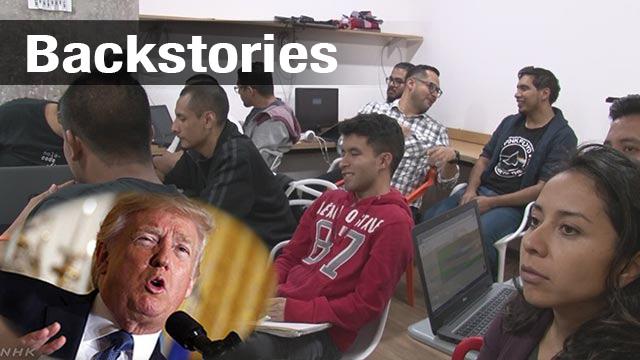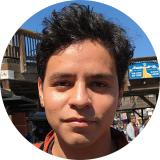Hola Code, a social enterprise based in Mexico City, offers an immersive 5-month software engineering boot camp to repatriated individuals. Unlike similar boot camps in the United States, which cost nearly $20,000 in tuition, Hola Code’s boot camp is initially tuition free, provides students with 3 meals a day, and gives them a monthly stipend to help with living costs. But most importantly for the startup and its students, Hola Code helps graduates obtain jobs with one of its 37 hiring partners across Mexico City’s tech ecosystem. “Right now, demand for engineers is so high in Mexico and the rest of the region that companies are skipping the traditional process of hiring and are looking for raw talent," says Torres.
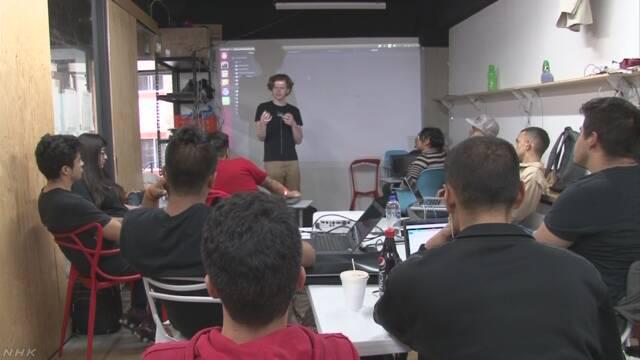
One of those companies is the consumer-to-business AI conversational platform Yalochat. "Hola Code is doing a terrific job of finding very talented, very hardworking people, also fighters that have migrated to the US," says Yalochat CEO Javier Mata, whose company employed one of Hola Code’s first graduates and whose list of clients include Volkswagen, Walmart, and Pepsi. "One of the US' greatest assets was its ability to attract the best talent, but now, with its ridiculous policies, that has been less and less the case, and that is good for countries that know how to take advantage of it."
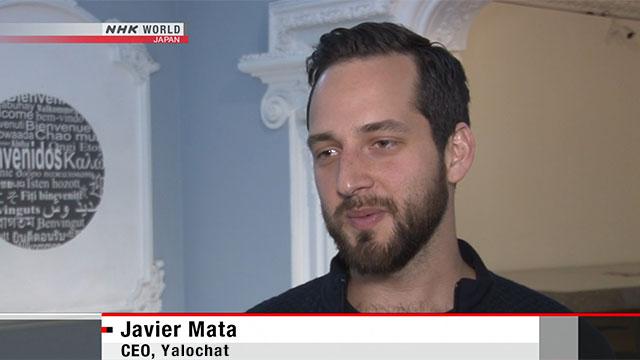
Since taking office, US President Donald Trump has undertaken policies that have earned him the ire of Silicon Valley and added bite to his anti-immigrant bark. These policies include restricting H-1B visas that tech firms use to hire high-skilled immigrant tech workers, and ending the Deferred Action for Childhood Arrivals program, which has turned into a Silicon Valley cause célèbre.
DACA, which the President ended in September 2017 and is currently being litigated in the courts, was instituted in 2012 by then-President Barack Obama to shield young people who were brought to the US illegally as children from deportation. Of the roughly 700,000 individuals currently enrolled in DACA, 80 percent are Mexican, according to US Citizenship and Immigration Services.
"Some of our students were taken to the United States at 12 months old," says Torres. "Coming back to Mexico doesn’t mean just coming back to Mexico, but coming to Mexico. And for them it’s a very difficult process because it’s not a familiar country."
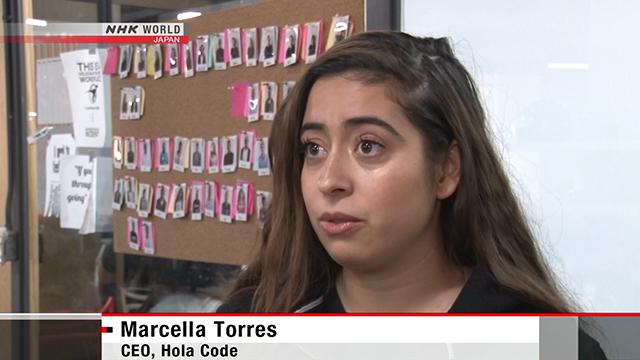
Two kilometers from Hola Code’s office and located a stone’s throw from Mexico’s Monument to the Revolution, is the office of ‘New Comienzos’, a non-profit established to help new arrivals reintegrate into Mexican society. On a sunny Thursday afternoon, Founder and President Israel Concha stands underneath one of the many palm trees that line the street in front of his office. “Right now, there are many people coming back, and I really think that we are going to set a record this year with Trump,” he says.
During the first 6 months of 2018, 109,296 Mexican nationals were repatriated from the United States, a 42 percent increase from the same period from a year before, according to Mexico’s Secretariat of the Interior.
"We want to contribute more to Mexican society. Many of us will never go back to America, but guess what? We’re coming back with 21st-century certifications, we are fully bilingual, we have a lot to offer Mexican society and that’s what’s going on in this little area, in little LA,” says Concha.
During a tour of the area, Concha, a deportee himself, shakes hands with pedestrians like a celebrity. He stops at a call center near his office and greets some of the dozens of the recent arrivals that work there.
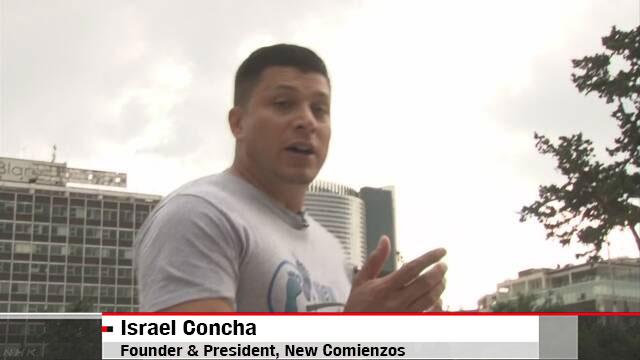
"We call them poverty traps," Torres says of the call centers. "Because you get very basic income. It’s not enough for you to continue studying, or save, or to radically change your life. It’s a means of survival and you can get trapped in that circle."
Maria Herrera, 27, and Arnold Guadarrama, 31, both found community in "Little LA" and later at Hola Code away from that poverty trap.
Herrera was 5 when she was taken from Mexico to live in Colorado by her mother. “I never got into trouble with the law or anything,” she says, “But once Trump became president, things started to change.” After living in the US for 21 years and barely speaking any Spanish, Herrera was arrested and taken to a detention center before deciding to self-deport.
She’s been in Mexico City for 3 months. “I was expecting a lot worse, but it's better here because I get to be surrounded by people who have been through the same thing," she says.
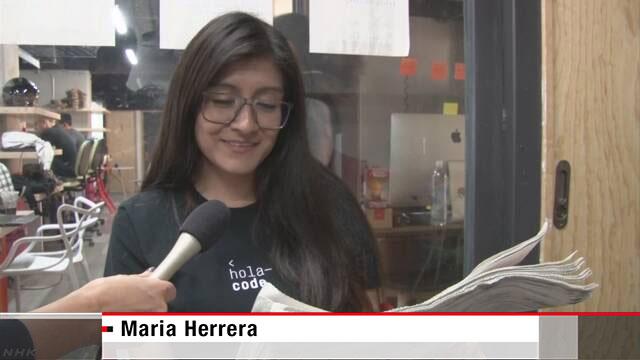
Similarly, Guadarrama was taken to the US when he was 3 and lived in the Dallas-Fort Worth area for 27 years before the father of 2 chose to return to Mexico this past December. "They don't give you an option. You are going back to your country or you are going to stay in the US and go to jail. I didn't want to be in jail, so I decided to come back to my home country,” he says.
At Hola Code, Herrera and Guadarrama find themselves in the same classes, learning from the same instructors, and eating lunch at the same table on a sunlit patio. With them are dozens of other students chatting and bonding over a shared meal, similar experiences, and an office dog.
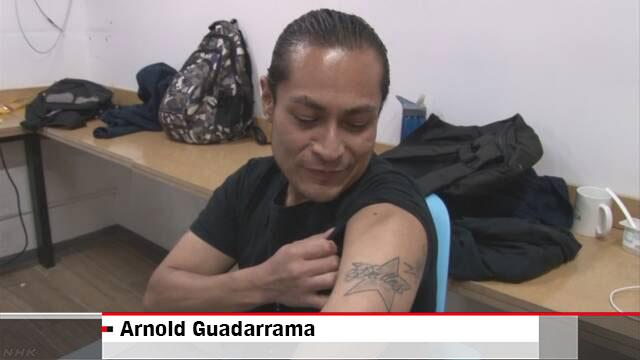
"Some of our students were working in kitchens, in the service industry, and then they come to Mexico, they receive this program, and in 5 months they're brilliant software engineers," Torres says with a glimmer of pride. "So, I think that says a lot about the quality of these young people."
